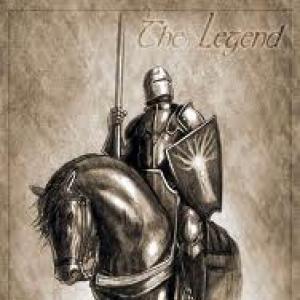When the complete independence of Greece was officially recognized. Report: Greek Revolution
the Russian Empire
France
Great Britain
Egypt
Greek War for Independence, sometimes also called Greek revolution (Greek. Ελληνική επανάσταση του 1821) - Armed struggle of the Greek people for independence from the Ottoman Empire, which began in the city and ended in the city of Konstantinople, who approved Greece as an independent state. The Greeks were the first of the subordinate peoples of the Ottoman Empire, who gained independence. It is from these events that the history of modern Greece begins.
Prehistory
The Ottoman Empire ruled almost all of Greece, with the exception of Ionian islands, during the XIV and XV centuries. But in the XVIII and XIX centuries, all Europe covered the wave of revolutions. Turkey's power decreased, Greek nationalism began to asserted and increasingly acquired support in the person of Western European countries.
In 1814, Greek patriots N. Skofas, E. Xantos and A. Tscakolov formed in Odessa a secret organization "φιλική εταιρεία" ("Friendly Society"). In 1818, the organization's center was transferred to Constantinople. With the support of the rich Greek communities who were in the UK and the United States, with the help of sympathizing in Western Europe and secret assistance from Russia, they planned an uprising against Turkey.
The uprising against the Ottoman rule was raised by a group of conspirators under the leadership of Iseland, consisted of a large extent of Russian officers of Greek origin. John Capodistria was offered to lead the liberation movement, but the one, occupying important diplomatic posts in the Russian administration, considered for a long time it was impossible to participate in the uprising, officially not supported by Russia.
Rise of Ipsilanti

Alexander Konstantinovich Ipsilanti
The uprising began on March 6, 1821, when Alexander Ipsilanti, accompanied by several other Greek officials of the Russian army, recruit the Prut River in Romania and joined his small detachment to the territory of modern Moldova. He was soon broken by the Turkish army.
The uprising broke out in the South Peloponnese (Sea) on March 25 ( See the article Herman (Metropolitan of Old Patches)). Within 3 months, the uprising swept the entire peloponnese, part of continental Greece, Crete Island, Cyprus and some other islands of the Aegean Sea. The rebels seized a significant territory. On January 22, 1822, the 1st National Assembly in Piada (near Epidaur) proclaimed the independence of Greece and adopted a democratic constitution. Military actions opp turkish troops They were relatively successful. Turkey's answer was terrible, thousands of Greeks were repressed with Turkish soldiers, Constantinople Patriarch Grigory V was heated. However, the Greeks did not remain in debt. Greek rebels executed thousands of Muslims, and many of them had no relation to Turkey or the revolution. All these events were badly perceived Western Europe. The British and French government suspected that the uprising was the Russian conspiracy to seize Greece and even possibly Constantinople. However, the leaders of the rebels conflicted among themselves and were unable to establish regular management of liberated territories. All this led to the internecine struggle. In Greece began civil War (The end of 1823 is May 1824 and 1824-1825).
Intervention of international forces
In the city of Turkish Sultan asked for help to vassal, but manifested the great independence of Hediva Egypt Mohammed Ali, who had just made serious reforms of the Egyptian army on European samples. Sultan Turkey promised to make concessions regarding Syria, if Ali helps. Egyptian forces, under the command of Son Ali Ibrahim, quickly seized the Aegean Sea. Ibrahim also accompanied success and on Peloponnese, where he managed to return Tripolis - the administrative center of the region.
However, in European countries, especially in England and France (and, of course, in Russia), the sympathy of Greek patriots among the educated elite and the desire to still weaken the Ottoman Empire - among politicians. In 1827, a convention was adopted in London, supporting the independence of Greece. On October 20, 1827, British, French and Russian squadron, under the general command of the English vice-admiral E. Krington, entered the Greek waters. On the same day, the Allies in the Navarino Bay Peloponnes met with the Turkish-Egyptian fleet. During the four-hour Navarrinsky battle, the Turkish-Egyptian fleet was divided by allies. Following this, the French landing land on land and helped the Greeks to complete the defeat of the Turks. Having won this victory, the Allies did not submit any joint actions aimed at undermining the military power of Turkey. Moreover, disagreements began in the ex-allies camp about the division of the former possessions Ottoman Empire. Taking advantage of this, Turkey in December 1827 declared Russia to Russia. The Russian-Turkish war began 1828-1829. In which Turkey suffered defeat. Under the Adrianopol peace treaty from 1829, Turkey recognized the autonomy of Greece.
Independent Greece
On February 3, 1830, the London Protocol was adopted in London, according to which the independence of Greece was officially recognized. By mid-1832, the boundaries of the new European state were finally carried out.
Statistics of the Greek Revolution
| Warring countries | Population (for 1821) | Mobilized soldier | Soldier killed | Killed civilians | |
|---|---|---|---|---|---|
| England | 14 100 000 | 8 000 | 10 | ||
| France | 31 150 000 | 10 000 | 100 | ||
| Russia | 49 300 000 | 1 200 000 | 10 000 | ||
| Greece | 950 000 | 100 000 | 50 000 | ||
| Total allies | 95 500 000 | 1 318 00 | 60 110 | ||
| Ottoman Empire | 26 500 000 | 400 000 | 15 000 | ||
| Egypt | 4 400 000 | 12 000 | 5 000 | ||
| TOTAL | 30 900 000 | 412 000 | 20 000 | ||
| TOTAL | 126 400 000 | 1 730 000 | 80 110 | 105 000 |
Literature
- Mernikov A. G., Spector A. A. The World History wars. - Minsk., 2005.
On March 25, Greece is celebrated as a state festival of independence of Greece (this day is given to the honors to the heroes of the Liberation War of 1821-1829). This holiday coincides with the Orthodox celebration of the Annunciation.
The Byzantine Empire fell under the blows of the Turks in 1453. From this time, all the Greeks came under the grievous yarm of the Ottoman Empire, which stretched over them for almost 400-tons. But, in spite of everything, for all this difficult Time, the Greeks retained their language, religion and a sense of national identity.
On March 25, 1821, the Bishop Herman after the Divine Liturgy raised the Greek flag over the Agia Lavra monastery on Peloponnese and proclaimed the motto: "Freedom or Death". So the eight-year-old bloody war began for the independence of Greece, which eventually led to the creation of the Greeks of his own state. 
The struggle for the liberation of all land inhabited by the Greeks continued. In 1864, ionic islands were liberated and included in Greece, in 1881 part of Epirus and Fessiona. Crete, the islands of the eastern part of the Aegean Sea and Macedonia were added in 1913, and Western Fracey in 1919. After World War II, Dodecanese Island also returned to His Motherland Elladu.
On March 15, 1838, a decree was issued, which announced the National Holiday on the 25th of March. In the same year, his first celebration took place, in the Athenian Church of the Holy Martyr Irina, a solemn liturgy was served. Thousands of residents of the city came to the streets, and in the evening the last minute crosses were installed at the highest points of the capital of Greece.
About 100,000 Greek soldiers were mobilized for eight years of bloody war for independence, of which about half died. According to the Adrianopol Treaty of 1829, Turkey recognized the independence of Ellala, and on February 3, 1830, the leading world powers were signed by the London Protocol, according to which the independence of Greece was recognized worldwide. The final borders of the newly formed Greek state were determined on August 14, 1832 on the imaginary line, which joined the Phazeti and Ambician bays.
It is believed that the motto of the revolution "Freedom or Death" (Elefteria and Fanatos) lay down the basis of the Greek flag. Nine flag lines reflect the number of syllables in this phrase.

Lines on the flag symbolize similarity with the waves on the sea. Alternation of blue and white flowers makes the Allensky flag look like the Aegean Sea. The Greek Cross, located in the upper left corner of the flag, symbolizes the respect and dedication of the Greek people of the Greek Orthodox Church, and the important role of Christianity in the formation of the modern Greek nation.
About four centuries, the Greek land was under the iron fifth of Turkish invaders. Turkish Pasha and Bai took a significant part of their labor products from the Greeks, subjected people to countless insults and humiliation. But freedom-loving Greece did not stop the struggle against the alien oppression.
High mountains served as a shelter for partisans who fought against the conquerors. Turks and their minions called Greek partisans by "Clefts", i.e., thieves. However, for the people of Klefta were not criminals, but valiant patriots, brave fighters against Turkish capture.
From the end of the XVII century. The struggle of the Greek people for their liberation took a wider scale. In Greece, trade was developed, the bonds between individual cities and localities were attached, capitalist relations were born. In seaside cities and on the islands, the Greeks-entrepreneurs and merchants launched their activities - the rich owners of large merchant ships. These ships, loaded with grain, skins, loans, dried fruit, resin, went between the ports of the Mediterranean and the Black Seas and brought considerable baryrs to their owners. But it was worth a merchant to get rich, how a whole army of greedy Turkish officials was thrown on him, who stored pulling more money from a merchant. If the merchant resisted with these harassment, he could go to jail and even lose his head.
Many Greeks, fleeing from the arbitrariness of Turkish Pasha, moved abroad. Here they were engaged in trade and craft, received education. But, in whatever the country, the Fate either threw the Greeks, they did not cease to think about the suffering of their homeland, looking for ways to get rid of her from the cruel oppression.
In 1814 in Odessa, a group of Greek patriots created the secret society "Film Eteriya" ("Union of Friends") for the struggle for the liberation of Greece. Soon everywhere where the Greeks lived, in large European cities and in small villages of attices, Epirus, seas, on the islands of the Aegean Sea and in Clemph Camps on Pinda Circles - There were cells of ethers. In February - March 1821, at the same time in two places, an uprising broke out, prepared by this patriotic society.

At the end of February of the same year, the Russian-Turkish border was held through the river, the armed detachment armed with Russia. He led Alexander Ipsilanti - General Russian Service, Greek by origin. When the news about the first successes of this group reached Greek land, the authorities could not keep the people from the uprising. It began at the end of March 1821 in the Sea. From the mountains descended troops of klefts. He headed them a fearless bellotronis, whose Turks killed almost all their relatives. They joined thousands of peasants armed with doubles and braids. They throat the estate of Turkish Beeys. The population of the islands rose to the struggle. By the end of 1821, a significant part of Greece was in the hands of the rebels. In January 1822, the National Assembly in the epidavra (sea) proclaimed Greece by an independent state. The National Government was created.
The Turkish Sultan and his ministers decided that with the rebels you can only speak the tongue of bullets and gallows. The wave of Greek pogroms swept throughout the Turkish empire. In Constantinople, the Turks hung 84-year-old Greek patriarch Gregory W. The terrible massacre was learned on the island of Chios, where they did not even gentle babies, they set fire to monasteries in which defenseless people were hiding. Of the 100-thousandth population of the island survived only about 2 thousand people.
Large Turkish forces told the offensive on the liberated areas from the sea and on land. But near each village, each mountain pass of hated oppressors met bullets. Volatile partisan detachments Day and night attacked military units and summies. Under these continuous blows, the enemy army melted. The Turkish fleet failed. Small, but fast and sober Greek ship blocked the path of multi-end Turkish ships. One courageous sailor on his brand was sighted into the moonless June night of 1822 in the parking lot of the enemy fleet and set fire to the flagship ship, while it was a feast on the occasion of the Muslim holiday. Turks covered by panic, the Turks hurried to cover other ships in Dardanelles.

The heroic struggle of the Greek people for their independence caused sympathy worldwide. Her hotly welcomed the advanced people of many countries and among them the great poets - Pushkin, Byron, Beranta. In favor of the Greeks gathered money, volunteers rushed to the aid. One of them was Byron. Hot desire to help the Greek people sounded in verses of the Russian poet-Decembrist V. Kyhehelbecker:
Friends! We are waiting for Sons of Ellala.
Who will give us wings? Fill!
Sing the mountains, rivers, hails, -
They are waiting for us - rather to them!
In 1824-1825 Sultan threw a well-trained and armed Egyptian army for the suppression of the uprising. Greece at this time was weakened by internal discord. All the people against the Turks carried the people against the Turks, and at the head of the government turned out to be rich shipowners and landowners. Having taught the former Turkish gentlemen, they wanted to preserve and multiply their wealth and land, but to leave the easiest people with powerless and beggar. At the same time within the ruling camp between separate groups The struggle for power did not stop, in the end, led to the Civil War.
Meanwhile, the Egyptian troops have already moved along the Greek land. The commander of the Egyptian army was ready to leave Greece without Greeks, just to strangle the uprising. His troops burned and pulled out sowing, destroyed cities and villages, forcibly exported Greek peasants to Egypt. With unparalleled heroism, simple peasants, sailors, artisans continued to defend each span of native land.
One of the most heroic episodes of the People's War was the defense of Missolong. In May 1825, the Turks were sieged to this city. Sultan warned the commander of the Turkish army, that if Missolong does not fall, then the head of the commander will fall.
 On offer Send parliamentaries knowledgeable languagesTo discuss the conditions for the delivery of Missolong, the deposited were replied: "We are people ignorant, we do not know the languages \u200b\u200band we can only fight." Soon the Egyptian troops arrived at the top of the Turks. The city was at the siege iron ring. It came to the end and food. Even the mice and rats were eaten. Cold winter residents of frozley in houses without roofs torn bombs and shells. Exhausted hands of warriors barely kept weapons. But no one has spoken about the delivery. Heroic defense continued almost a year. In April 1826, when the forces were on the outcome, residents of the city, including women and children, headed for Turkish trenches to break through the mountains. However, out of 16 thousand people managed to escape a little more than a thousand. Those who do not fell in battles were brutally killed by Turkish soldiers burst into the city.
On offer Send parliamentaries knowledgeable languagesTo discuss the conditions for the delivery of Missolong, the deposited were replied: "We are people ignorant, we do not know the languages \u200b\u200band we can only fight." Soon the Egyptian troops arrived at the top of the Turks. The city was at the siege iron ring. It came to the end and food. Even the mice and rats were eaten. Cold winter residents of frozley in houses without roofs torn bombs and shells. Exhausted hands of warriors barely kept weapons. But no one has spoken about the delivery. Heroic defense continued almost a year. In April 1826, when the forces were on the outcome, residents of the city, including women and children, headed for Turkish trenches to break through the mountains. However, out of 16 thousand people managed to escape a little more than a thousand. Those who do not fell in battles were brutally killed by Turkish soldiers burst into the city.
But the fall of Missolong did not break the will of the Greeks to the fight. The bellotronis, headed by Greek forces in the Sea, gave a worthy answer to the offer of the Turkish commander to surrender: "If you even cut down all the branches of our trees, if you even burn all our homes and trees, if only piles of stones are left, we still do not bow to you knees. No matter how much trees you cut down and burned, you will not take with them the earth. And the land that grown them will remain, and trees will grow again on it again. And if only one Greek remains, it will still fight. "
Advanced people of Russia, England, France and other countries have more resolutely demanded to put an end to violence and atrocities of the Turkish military. Greek patriots appealed to the Russian government asking military assistance. Among the Greek people were widespread sympathy for Russia. Tsar Nicholas I negatively treated the liberation war of the Greeks, considering their "rebels". But he still decided to intervene in Greek affairs and use the heroic struggle of the fracturing people to strengthen his influence on the Balkans and weaken the long-time enemy of Russia - the Sultan Turkey. Governments of England and France, fearing that Russia alone widespread over Turkey and that she will get all the benefits from victory, joined Russia.
On October 20, 1827, the United Russian-English-French squadron attacked the Turkish fleet in the Navarino Bay. After a short battle, about 100 Turkish warships were turned into sins and smoking fragments. Russian sailors inspired by the desire to help the Greek people fought with selfless courage.
However, Sultan and after the destruction of his fleet, refused to stop hostilities in Greece. Then Russia announced in April 1828 by the war of Turkey. The hot summer of this year, Russian infantrymen, clogging along the steep mountain paths, broke through the chain of the Balkan Mountains. When the Russian army spread her tents near Adrianopol, just 200 km from the Turkish capital - Konstantinople, - Sultan sent to the Russian camp of the Commissioners with a request for the world.
According to the Adrianopol world with Russia (1829), the Turkish government recognized autonomy (self-government), and soon the independence of Greece (1830). Dozens of thousands of the best sons of the Greek people and many Russian soldiers are spilled in vain, and many Russian soldiers - chains of century-old slavery were torn.
If you have found a mistake, please select the text fragment and click Ctrl + Enter..
For the Greeks, the most significant holiday in the year is the Independence Day of Greece. It is celebrated at the end of March, namely the 25th. Like most Peninsula, Greece for more than four centuries was under the igg of the Ottoman Empire. In 1821, the people mobilized all their strength and stood on the path of the national liberation struggle, the outcome of which was the proclamation of independence. This happened on March 25 of the same year. Unlike the results of the upright of 1771-1781, the Greeks were finally able to win over Turkish invaders.
The beginning of the national struggle and the long-awaited Independence Day of Greece
As it sounded strange, but the idea of \u200b\u200bthe liberation struggle first originated in the Greeks living in Ukraine. There, especially in port cities (Odessa, Kherson, Taganrog, etc.) in the second half of the 18th century a large Greek community formed. It consisted of families who fled from under the Turkish oppression. In 1814, the national liberation organization "Friendly Society" began to form in the medium of emigrants. Her leaders sent delegates to all among the inspirationors were Russian officers - the Greeks on the origin - the brothers Alexander and Dimitros Iseland. They were close to the yard of the Russian emperor. At the beginning of the first spring month of 1821, the brothers headed the uprisings in Moldova, the Sea and other Balkan countries. In the last decade of the month, it was planned to hold the most large-scale action - an armed uprising. Soon he was appointed and the day of the beginning - March 25. As a result, the Greek people could overcome enemy invaders. Turkish warriors in the territory of Greece in the territory of Greece for four centuries were forced to leave the country. Today this day is noted as the day of independence of Greece. He is an unconditional leader among the main holidays for modern Greeks, which, thanks to this, the last 200 years live in a free country. The Greeks, as you know, are one of the most freedom-loving peoples throughout Europe, and to be under whose IGA is simply tantamount to death. That is why they will value with their freedom, and for them - the day of the national revival of Greece.

Orthodox holidays in Greece
As already noted, in this Christian country, along with secular public holidays, church are also included. In Orthodox Greece, oddly enough, Christmas is celebrated by catholic calendar - From the 24th to the 25th of December. But on January 6, the Epiphany and the Baptism of Jesus in the Jordan River are celebrated here. This is a very beautiful ritual. After the liturgy, the priest throws the cross into the marine bunch. Following her in the cold January of the Mediterranean Sea, everyone dives all those who wish. The one who can get the cross becomes the hero of this holiday. In fact, Greece holidays are always celebrated with a big sweep. Folk walking is organized, the sea is poured, and tables from treats are broken. Greeks, like no other nation, love to have fun, dance, sing, etc. Even such as the beginning of the Great Post and the Annunciation of them take place with a big sweep. It is clear that on the day of Easter (the end of the Great Post) People sings and rejoices. Among the church holidays, Greece is another, which, perhaps, is noted, only in this country is May 21 - the Day of Saints Constantine and Elena. This day is notable for massive proceedings. With the name Konstantin also connected by the Intercession of the Blessed Virgin Mary (Agia Skop) - the day when the emperor was miraculously saved from the siege of Muslims.

Features of the celebration
Each of these holidays has its own special rituals. These days the hostess are preparing special dishes. It is especially important to prepare a festive bread, in which, depending on the holiday, hide a coin or something else. In addition, the Greeks love to celebrate holidays in noisy companies. Sitting, there are delicious dishes prepared by skillful mistresses, drinking beverages of local origin, to carry out casual conversations about being about this, peeling a song, etc. The climax of any Greek holiday is national dances, especially Syrtaki. Putting his hands to each other on the shoulders, the Greeks begin their legendary dance.
National Holidays of Greece
As with most countries of the world, the allecent holiday is still New Year. He, as in all European countries, is celebrated on the night of January 1. May Day in Greece is a day of colors and labor. For most Greeks on the first day of May, it is a must-go on nature, where girls and women weave wreaths from then keep them up until August 29 (St. John's Day), and then burned on a fire.

And women did not forget!
In the Greek Balkans there is a holiday dedicated to the weak floor - hynaicracy. It is also celebrated on the 8th, only not March, and January. Women's festivals are held on this day. Husbands take on all homemade troubles and free from them on the day of their halves, which lead themselves in order and go to a cafe or restaurant.
The national holidays of Greece also include: May 19 - the day of memory of the victims of the Genocide, the day of Ohhi - August 28 and November 17 - Polytechnio holiday. Well, and the most important holiday, as already noted, is the Independence Day of Greece. Of course it is not full list Holidays that are celebrated in this country. Nevertheless, those that we have already called are the most massive.

The most important Greek holiday
Of course, you guessed what we were talking about. Of course, this is the Independence Day of Greece. Despite the fact that it does not apply to church, on this day in all churches of the country in the morning the morning liturgy is held, the bells call, etc. After that, on the streets of large cities there is a military parade, peaceful demonstrations of workers. Flowers and wreaths are assigned to the memorials of the victims in the days of the uprising.
Call and our employees will find a tour meeting all your wishes.
Zheleznovodsk (879З2) S-20-2D, Pyatigorsk (879) З6-58-З6
Kislovodsk (879) 9-81-79, Essentuki (879З4) 5-17-45
If it is difficult to get through - fill out the form, we will call themselves
Departures from Mineral Waters, Rostov on Don, Krasnodar, Sochi, Stavropol
Geographical position and nature
The state in the south-east of Europe, located in the southern part of the Balkan Peninsula and on the islands of the Aegean, Ionian and Mediterranean seas. In the north it borders with Bulgaria (the length of the boundary of 494 km) and Macedonia (228 km), in the north-west - with Albania (282 km), in the northeast - with Turkey (206 km). In the south is washed by the Mediterranean Sea, in the east - Aegean, and in the West - Ionian Sea. The total length of the border is 1 210 km, Alina Coastline - 13,944 km. Total area 131 957 km 2 (Sushi Square - 130,800 km 2). Approximately one fifth part of the country's territory occupy the islands of Crete, Evie, Rhodes, Lesbos and many others. Greece coast is strongly cut. Moody-honeycomb mountains and plateary occupy about 2/3 of the territory, the highest height - Mount Olympus (2917 m). Plains and lowlands are located mainly in the seaside areas. The main rivers: Alialymon, Aheloos, Streamon (Struma), Nestos. In the depths of the country there are reserves of bauxite, lignites, nickel, magnesite, oil. Under arable land, 23% of the territory, meadows and pastures occupy 40%, forests and shrubs - 20%.
Population
The population is 10,647,511 people (1995), the average population density is about 80 people at km 2. Over 95% of the country's inhabitants - Greeks, other ethnic groups: Turks, Albanians, Armenians. The official language of Greek, English is also widespread and french. The dominant religion is Orthodox Christianity (Greek Orthodox Church). Birth rate - 10.56 newborns per 1,000 person (1995). Mortality - 9.31 deadly outcome of 1,000 people (the level of child mortality - 8.3 fatal outcome of 1,000 newborns). The average life expectancy: men - 75 years old, women -80 years old (1995). The able-bodied population is 4,077,000 people, of which 52% are employed in the service sector, in industry - 25%, in agriculture - 23% (1994).
For the plains and the lower parts of the mountains near the sea, the Mediterranean subtropical climate is characterized with soft wet winter and hot dry summer. The higher the mountains, the lower the temperature and more the amount of precipitation. In the mountains above 1,000 m, in the northern and northeastern part of Greece, at altitudes 500-600 m, snow falls annually, and the summer, unlike plains, is not so dry. Extracted mainly from the north to south, the ridges are a significant barrier for western winds carrying moisture. The western part of the Greek Peninsula has a more humid and mild climate than its eastern half. On the windward side of the mountains drops 1,200-1,400 mm, on the leeward - twice as smaller, on the plains in the eastern part of the country - up to 350-500 mm per year. The average temperature of January in the north of the country is 4 ° C, and in the southern part of the Aegean Sea - 11-13 "s. Negative average monthly temperatures of January are marked only in the mountains: in the north of Greece at an altitude of more than 700-800 m, in the south - at a height of 1,400 -1 500 m above sea level. The most arid and the hottest months - July and August. The average air temperature on the lowlands ranges from 25 to 28 ° C, but often it rises to 40 and even 45 "s. On the coast of summer heat, sea breeze soften.
Vegetable world
The forests occupy only 10-11% of the country's territory, but there are widespread overgrowns of evergreen and leaf falling shrubs - McVis and a shiblyak. It is typical for Greece and Frigan - a low barbed shrubs and semi-stabilics. There are groves of pines, evergreen oaks, cypresses and plane fees. Widespread on the plains and in the foothill belt, vineyards and gardens from Mediterranean fruit trees. Above the evergreen belt is located the belts of mountain forests and shrubs, in which, with an increase in height, cultural vegetation is gradually replaced by natural, evergreen forests and shrubs are moving to deciduous, and the latter - in coniferous.
Animal world
The animal world is poor mammals, especially large. Occasionally in the mountains in the North-West countries there is a bear, and from predators there were wild cats, fox, jackal, stone cuckit, badger. From unfortunate in small quantities there are critical mountain goats, Lan, Koslya, noble deer, a boar. The most numerous of the mammals rodents (dike, gray hamster, mice, sony, voles, etc.), southern types of volatile mice and insectivores - earthmock, hedgehogs, moles. In Greece, many reptiles - turtles, lizards, snakes. Diluted and abundant fauna birds: quail, wild ducks, pigeons Viliaria and Clintuh, gray and, especially, mountain partridges, brightly opaireny foddes, kingfisher, and from predatory - crucifies, black stains, eagles, falcons, owls. For Greece, the long-axis cormorant is also characteristic, curly pelican, stork. Among the invertebrates a lot of ground mollusks (snails): there are 120 types of mollusks in Crete, of which 77 are found only in this territory.
State device, political parties
Complete name - Greek Republic. Political system - Republic. The country consists of 13 dioceses, which, in turn, are divided into 51 prefectures. The capital is Athens. Independence Greece received in 1830 from Turkey. Legislation is based on Roman law. National holiday - March 25 - Independence Day (the beginning of the war of 1821 for the independence of Greece). The executive authority belongs to the President (head of the state) and the government led by the Prime Minister. Legislative power is carried out by a unicameral parliament. The most influential political parties: new democracy - ND). Severe Socialist Movement, Coalition of Left and Progressive Force, the Communist Party of Greece (CPG).
Economy, Transport Communications
Tourism is one of the most important sectors of the Greece economy. Among industry industries are the most developed food, light, textile, mining, chemical, metallurgical. Agriculture (including fishing and forestry) provides 17% GNP, main agricultural crops: millet, barley, olives, tomatoes, grapes, tobacco, potatoes, sugar beet. The country fully ensures domestic food needs, except for meat and dairy products. GNP in 1991 amounted to $ 93.7 billion (GNP I am inflation - $ 8,870). Monetary unit - Frachma (1 drachma (DR) is equal to 100 lepts). Main trading partners - EU countries: Germany, Italy, France, United Kingdom.
Total length railways - 2577 km, roads - 42,000 km (25,000 km - with a solid coating). The main ports of the country - Alexandroupolis, Heraklion, Patras, Rhodes, Thessaloniki.
Already 3 thousand BC. e. There was a highly developed civilization on the territory of modern Greece, which was divided into CRT, Peloponesky and Mycenaean periods. Before the invasion of Dorians at the end of the 12th century. BC e. In Ellad (the ancient name of Greece), crafts and trade, as well as various types of arts flourished. After the period of the Hellenic middle ages in the 6th century. BC e. The stage of classical Greece came, when his apogee reached Athenian democracy. After the victory of Greece over the Persia in 500-449. BC e. And the creation of the Delos Union, led by Athens, a prosperous state was formed on the territory of modern Greece. After weakening Athens as a result of the war with Sparta and Corinth (Peloponess Wars 431-404. BC) Grew the role of Macedonia, whose ruler of Philip II managed to subordinate to the whole territory of modern Greece. His son, Alexander Great, manifesting himself a skillful commander, created a huge empire who included in himself, in addition to Greece, Egypt and West Asia and stretched to borders with India. In 2nd. BC e. Greece fell under power Ancient RomeFor which, for his part, Greek civilization had a huge cultural influence. The latest Olympic Games, held in 393 BC. e., appeared the symbolic date of the end of the era Ancient Greece. After the collapse of the Ancient Roman Empire, Greece was part of Byzantine state In 395, after the invasion of Slavic, Albanian, Valah tribes, gradually assimilated with the local population, in the Balkan Peninsula, Greece was occupied by Arabs at 9th century, then Bulgarians at the end of 10 V. At the beginning of the 13th century. Venetian influence on the coast of Greece spread. Fucking on the territory of the Byzantine Turkish Empire in 1460 g.separated Greece, which remained under the domination of the Ottoman Empire more than three centuries. The Greek people, revealed by the position of slaves, was repeatedly rising to the struggle against Turkish conquerors, but only the revolution of 1821 brought Greece independence, which Turkey recognized in 1830 as a result of the Balkan wars in the early 20th century. The Greek kingdom returned to itself Macedonia, Epir, Crete and Islands in the Aegean Sea. After the First World War, antimonarchic sentiments arose in the country, in 1923 there was a coup, as a result of which King Konstantin was forced to renounced the throne in favor of his son George II, and in 1924 Greece was proclaimed in the republic. The political crisis of 1935 led to the restoration of the monarchy. Relaxing the attacks of the Italian troops in October 1940, Greece could not resist German invasion in 1941. After the liberation of the country in 1945, the fighting continued until 1949 between the rebels of the Democratic Army of Greece (Communists) and government troops supported by Great Britain. On April 21, 1967, a coup in the country occurred, as a result of which the military junta came to power, which had canceled the Constitution and the parliamentary system. In 1973, the Military ("Black Colonels") canceled the monarchy, lowered the king Konstantin, who was forced to leave the country back in December 1967. In 1974, the military junta was removed from power, thanks to which about 40,000 Greeks could return to the country, fled from the persecution of the regime. The referendum held in December 1974 confirmed the negative attitude of the country's residents to the restoration of the monarchy, and in 1975 a new republican constitution was adopted.
sights
Greece is one of the main centers of international tourism. The most popular among tourists Athens, Rhodes, Crete. Athens are: Acropolis with antique temples, the Temple of Olympic Zeus (2 V. BC. E. - 2 V. N. E.), Medieval Church of the Byzantine Epoch, National Archaeological Museum, Museum of Agora, Byzantine Museum, National Gallery. Crete Island - one of the centers of ancient Aegean culture, there are ruins ancient City Knossos. On the island of Rhodes - monuments of antique and medieval architecture. In Thessaloniki noteworthy Byzantine churches of 4-14 centuries. With beautiful mosaics and frescoes.
Participation in International Organizations
BMR, TKK, CERN, CSCE, EBRD, EU, EEC, EIB, FAO, Gatt, IAEA, MBRD, ICAO, MKSP, MAP, Maa, Ifad, IFC, ILO, IMBF, IMO, Inmarsat, Intelsate, Interpol, IOC, ISO, ITU, NATO, ESR, UN, UNCTAD, UNESCO, UNHCR, UNIDO, UPU, WHO, WIPO, WTO.
Tags :: :::







